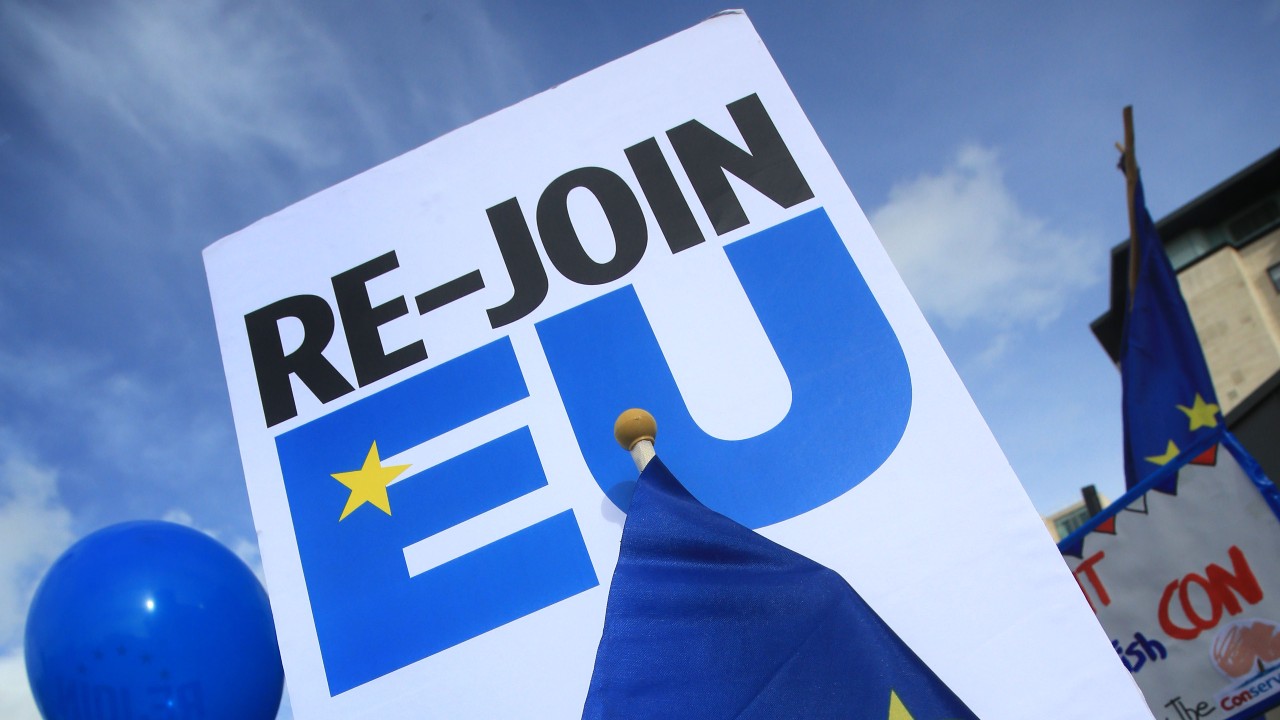Could the UK really be pulled back into the EU?
Labour accused of ‘stealth’ tactics as polls suggest solid majority now think Brexit should be reversed

A free daily email with the biggest news stories of the day – and the best features from TheWeek.com
You are now subscribed
Your newsletter sign-up was successful
Keir Starmer has been accused of trying to drag the UK back into the European Union through the back door after it was revealed that Labour is considering plans to enfranchise millions of EU citizens.
The proposals, which would allow EU nationals who live permanently in the UK and pay tax to vote in general elections, “are seen as highly likely to benefit Sir Keir’s party at future elections by expanding the electorate by some 3.4 million EU nationals”, reported The Telegraph.
This would effectively be “laying the groundwork to drag the UK back into the EU by stealth”, Conservative Party chair Greg Hands claimed, arguing it was “an attempt to rig the electorate to rejoin the EU”.
The Week
Escape your echo chamber. Get the facts behind the news, plus analysis from multiple perspectives.

Sign up for The Week's Free Newsletters
From our morning news briefing to a weekly Good News Newsletter, get the best of The Week delivered directly to your inbox.
From our morning news briefing to a weekly Good News Newsletter, get the best of The Week delivered directly to your inbox.
Rejoining the EU ‘by stealth’
Hands stressed that “the right to vote in parliamentary elections and choose the next UK government is rightly restricted to British citizens and those with the closest historical links to our country”. He pointed out that “no other EU country allows EU citizens who are not their nationals to vote in parliamentary elections”.
Labour has sought to downplay claims the proposals amount to “gerrymandering”, with allies of Starmer saying the details of the policy were still being worked out and would only apply to EU nationals who had paid tax in Britain for a number of years.
Yet “even the idea of a limited extension of the franchise to longstanding UK residents from the EU would be controversial”, said the Financial Times, “given migrants are considered more likely to support Labour than the Conservatives”.
Tory peer and polling expert Lord Hayward “warned the move could backfire by deterring former Labour supporters in the party’s traditional heartlands from returning to the fold”, said The Telegraph.
A free daily email with the biggest news stories of the day – and the best features from TheWeek.com
“I think this would be an unwise move if they are going to attempt to recapture Leave voters in what are essentially Red Wall or traditional marginal constituencies,” he said.
Bregret but not Brejoin
While Brexit was once viewed by Tory strategists as “Starmer’s achilles heel”, the Labour leader has found a middle-ground that “frustrates many in Labour’s pro-Remain membership but is in tune with public opinion”, said Andrew Grice in The Independent.
With the much-trailed “Brexit dividends” failing to materialise, the most recent opinion polls show a solid majority now think Brexit was a bad idea, with an average of 58% of people wanting to be in the EU compared to 42% who are keen to be outside the bloc.
“But doing something different back then is not the same as wanting to undo things now,” said the UK in a Changing Europe think tank. “Polling on what should happen now is much more ambivalent: when given more than a simple ‘in/out’ choice, people think positively about having a closer relationship, but the appetite for returning to EU membership is much more of a push.”
There may be “growing Bregret”, said Luke Tryl, director of More in Common, but there is “little appetite for Brejoin”. At least not at the moment.